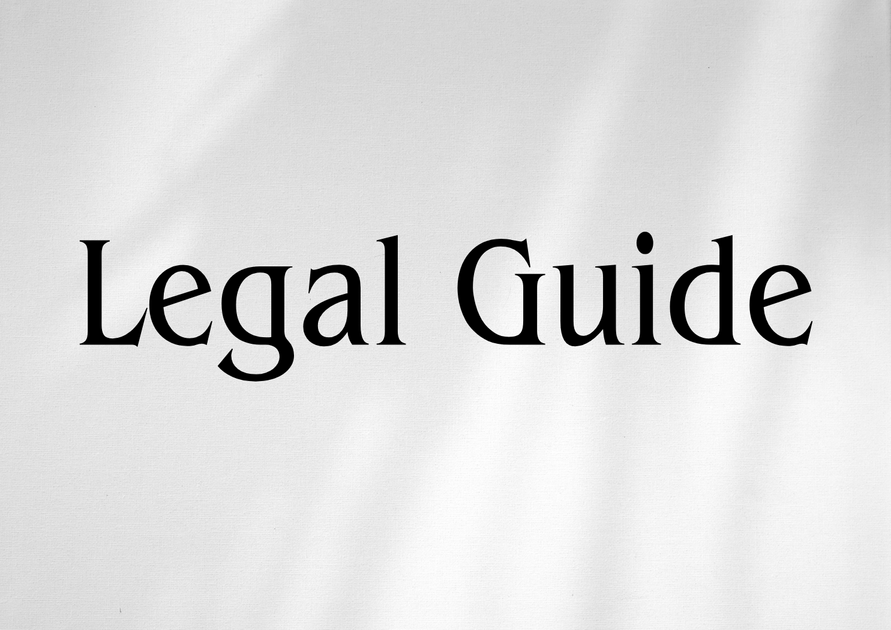Introduction
Mergers and acquisitions (M&A) have become pivotal strategies for businesses looking to expand their operations, diversify portfolios, or gain market advantages in the United Arab Emirates (UAE). The UAE’s progressive regulatory environment supports an active M&A landscape, especially after a series of significant legislative reforms, such as the Federal Decree Law No. 32 of 2021 concerning Commercial Companies and subsequent regulatory updates announced up to 2025. Understanding the distinctive legal frameworks that govern M&A transactions in Free Zones compared to Mainland companies is imperative for organizations, executives, and legal practitioners seeking informed decision-making and effective risk management in this domain.
This article delivers an in-depth, consultancy-grade comparative analysis between M&A operations in UAE Free Zones versus the Mainland. We reference authoritative legal sources including the UAE Ministry of Justice, Federal Legal Gazette, and official government portals. Our insights respond directly to the dynamic landscape shaped by recent legislative evolutions and their practical repercussions. Whether you are a CEO, in-house counsel, HR leader, or business investor, this guide equips you with actionable legal understanding and compliance strategies essential for navigating the nuanced M&A environment across the UAE.
Table of Contents
- Legal Frameworks Governing M&A in the UAE
- Mainland Companies versus Free Zone Entities: Legal Comparison
- Detailed Analysis of M&A Provisions: Mainland and Free Zone
- M&A Process, Timelines, and Regulatory Requirements
- Risks of Non-Compliance and Compliance Strategies
- Case Studies and Hypothetical Scenarios
- Impact and Practical Considerations for Businesses
- Conclusion and Best Practices
Legal Frameworks Governing M&A in the UAE
Overview and Recent Updates
The legal landscape for M&A in the UAE features distinct frameworks applying to Mainland and Free Zone companies. The Federal Decree Law No. 32 of 2021 on Commercial Companies regulates most Mainland entities, replacing the earlier Law No. 2 of 2015 and incorporating crucial 2022-2025 updates for enhanced business flexibility and foreign investment. In contrast, each Free Zone operates under its regulatory authority—such as the Dubai International Financial Centre (DIFC), Abu Dhabi Global Market (ADGM), or Jebel Ali Free Zone Authority (JAFZA)—with tailored company regulations, sometimes incorporating elements of common law for specific areas.
Key recent developments include:
- Liberalization of foreign ownership for Mainland companies (as per Cabinet Decision No. 16 of 2020 and the 2021 Amendments).
- Procedural simplifications for M&A approvals within both Mainland and select Free Zones.
- Elevated due diligence and compliance requirements, especially regarding anti-money laundering (AML), as enforced by the UAE Ministry of Justice and Federal AML/CFT Laws.
Professionals must be aware of these shifting legal contours to ensure effective transaction structuring and regulatory compliance in 2025 and beyond.
Mainland Companies versus Free Zone Entities: Legal Comparison
Structural Fundamentals
Mainland companies are established under the Federal Commercial Companies Law and are subject to the regulatory purview of the Department of Economic Development (DED) in their respective emirate. They may operate across the UAE, engage in business with the local market directly, and are now eligible for up to 100% foreign ownership in many sectors.
In contrast, Free Zone companies are incorporated under their zone authority, are generally limited to activities within the Free Zone or for export/import, and often have restrictions on direct trading with the Mainland UAE without an appointed local distributor or agent. Each Free Zone may have unique rules for shareholding, M&A, and governance aligned with industry focus—e.g., technology, finance, logistics.
Table: Key Legal Differences
| Aspect | Mainland | Free Zone |
|---|---|---|
| Governing Law | Federal Decree Law No. 32 of 2021 on Commercial Companies | Respective Free Zone Authority Regulations (e.g., DIFC, JAFZA, ADGM) |
| Foreign Ownership | Now permitted up to 100% (sector-specific) | Up to 100%, usually mandated |
| M&A Process | Requires DED and potentially MOE approvals | Subject to local Free Zone Authority procedures |
| Trading Scope | UAE-wide (including Free Zones) | Limited, unless a Mainland branch is established |
| Applicable Courts | UAE Civil Courts (Federal or Local) | Free Zone courts (e.g., DIFC Courts/ADGM Courts, or UAE Courts for certain matters) |
| Corporate Tax (as of 2023/2024) | Subject to Corporate Tax under Federal Decree-Law No. 47 of 2022 | Usually exempt, but with exceptions and qualifying criteria |
| AML Compliance | Strict compliance enforced by Central Bank and MOE | Mandatory, often with additional Free Zone regulator oversight |
Visual Suggestion: Comparative Infographic – M&A Legal Steps in Mainland vs. Free Zones
For enhanced reader clarity, a graphical flowchart contrasting the step-by-step M&A processes in Mainland and top Free Zones (e.g., DIFC, JAFZA) is recommended.
Detailed Analysis of M&A Provisions: Mainland and Free Zone
Mainland Corporate M&A Provisions
The Federal Decree Law No. 32 of 2021 lays out unified rules for share transfers, mergers, acquisitions, and demergers. Key regulations include:
- Mandatory shareholder approval (often by at least 75% majority, subject to Articles of Association)
- Notification to creditors and the public (30-day notice for creditors to raise objections, per Articles 283-285)
- Obtaining necessary regulatory consents (DED and, where relevant, sectoral regulators e.g., Central Bank for banking M&As)
- Updated requirements for cross-jurisdictional mergers (Mainland & Free Zone entities), now better articulated post-2021 amendments
The law specifies employee rights during a merger as well as statutory protections for minority shareholders.
Free Zone Provisions—Case Example: DIFC
DIFC (Dubai International Financial Centre) Company Regulations recognize diverse company structures and are broadly aligned with international best practices. Significant points include:
- Approval from the Registrar of Companies is necessary for share transfers, mergers, and cross-border transactions
- Specialized court system (DIFC Courts) for contractual and corporate claims
- Potential use of schemes of arrangement (especially for complex group structures)
- Company Registrar guidance on disclosure, due diligence, and minority buy-out rights
Table: Provisions Comparison – Old vs. New (Mainland Focus)
| Provision | Law No. 2/2015 (Old) | Law No. 32/2021 (New/Current) |
|---|---|---|
| Foreign Ownership Restriction | Up to 49% (unless in Free Zone or with special approval) | Up to 100% in most sectors |
| Cross-border M&A Clarity | Limited; unclear process for Free Zone/Mainland mergers | Detailed provisions on cross-jurisdictional M&As |
| Requirement for Local Partner | Mandatory in most cases | Relaxed; depends on activity and sector sensitivity |
Visual Suggestion: Timeline Diagram – Typical M&A Process in Each Jurisdiction
A process timeline visual can help illustrate the stepwise requirements from initial due diligence through to closing and post-merger integration for both Mainland and Free Zone settings.
M&A Process, Timelines, and Regulatory Requirements
Mainland M&A Standard Procedure
Conducting an M&A transaction in the Mainland typically involves:
- Initial negotiations and due diligence (including legal, financial, and operational assessment)
- Obtaining board and necessary shareholder approvals
- Notifying the DED and seeking approval
- Publishing notice to creditors and other stakeholders
- Fulfilling sector-specific requirements (e.g. MOHRE for labor issues, Central Bank)
- Execution of definitive agreements and share transfer documentation
- Updating licenses and amending statutory records with commercial registry
Transaction timelines can range from 2-6 months, depending on transaction complexity, sectoral consents, and potential regulatory reviews.
Free Zone M&A Standard Procedure
While similarities exist with Mainland procedures, Free Zones often offer:
- Streamlined approval processes managed by the relevant authority
- Fewer public disclosure requirements, enhancing privacy and transaction speed
- Flexibility for cross-border and group restructuring, particularly in DIFC and ADGM
- Court procedures (if applicable) managed by Free Zone judicial system
Table: Mainland vs Free Zone M&A – Process Steps Overview
| Step | Mainland | Free Zone |
|---|---|---|
| Due Diligence | Comprehensive, often including public registry checks | Internal, with access to Free Zone records |
| Approval Timeframe | Variable, 6-12 weeks for routine cases | Usually expedited, 4-8 weeks |
| Regulatory Oversight | DED + relevant ministries | Free Zone Authority primarily |
| Disclosure Requirement | Public notice to creditors mandatory | Limited, typically members only |
Risks of Non-Compliance and Compliance Strategies
Legal and Regulatory Penalties
Non-compliance with the prescribed M&A procedural and disclosure requirements invites significant risks including regulatory fines, transaction nullification, personal liability for directors, and in some cases, criminal prosecution under anti-money laundering or anti-fraud statutes. For instance:
- Pursuant to the Federal Decree Law No. 32/2021, failure to properly notify authorities or creditors may result in monetary penalties up to AED 100,000.
- Transactions without requisite MOHRE or Central Bank clearance (where applicable) may be held void.
- Non-adherence to AML compliance as per UAE Federal Law No. 20 of 2018 (as updated 2023) can lead to corrective action, license suspension, or prosecution.
Table: Example Penalties for Non-Compliance
| Offence | Governing Law | Potential Penalty |
|---|---|---|
| Failure to Notify Creditors | Federal Decree Law No. 32/2021 | Up to AED 100,000 fine |
| Unapproved Foreign Shareholding | Commercial Companies Law, Cabinet Decision No. 16/2020 | Transaction void, possible license cancellation |
| AML Non-compliance | Federal Law No. 20/2018 (AML Law) | Fines, criminal liability, reputational damage |
Compliance Strategies for Organizations
- Early and comprehensive due diligence (legal, regulatory, and financial)
- Engagement with experienced UAE-licensed legal consultancies for structuring, negotiations, and documentation
- Robust internal policies for compliance monitoring, including specific training on latest regulatory updates
- Proactive consultation with targeted Free Zone or DED officials to clarify ambiguous requirements in advance
Case Studies and Hypothetical Scenarios
Case Study 1: Cross-Jurisdictional Merger between Mainland and Free Zone Company
In early 2024, Company A (a Mainland LLC) seeks to merge with Company B (a DIFC registered entity). Under the previous law, the process was ambiguous, resulting in delays. Post-amendment (as per Federal Decree Law No. 32/2021), the process is streamlined:
- Both companies secure board and shareholder approvals based on their respective jurisdictions.
- They coordinate with the DED and DIFC Registrar to align documentary submission.
- Public and creditor notices are issued in Mainland, and member notices in DIFC.
- Upon no objection from relevant authorities, the merger is effected and statutory records amended in both registries.
This demonstrates clarity and efficiency brought by the new regime, reducing transaction uncertainty.
Case Study 2: Acquisition of a Free Zone Trading Company by a Mainland Manufacturing Firm
A Mainland manufacturing company plans to buy out a logistics firm in JAFZA (Jebel Ali Free Zone) to streamline its UAE supply chain. The acquisition can proceed, but:
- The Free Zone entity cannot directly trade Mainland goods unless it operates a local branch or trades through a distributor, as per JAFZA and DED rules.
- Operational transition requires careful planning for compliance with both Free Zone regulations and federal tax requirements (post-2023-2024, certain business activities may trigger corporate tax assessments).
- Failure to plan for such regulatory nuances could result in avoidable penalties or disrupted business integration.
Impact and Practical Considerations for Businesses
M&A as a Growth Lever
With the aligning of UAE’s commercial laws to global norms and the liberalization of ownership, M&A is increasingly viewed as a viable growth lever for both local and international investors. Notably, Free Zones offer sector-specific ecosystems ideal for technology, finance, and import-export consolidations, while Mainland acquisitions are optimal for accessing the domestic UAE market.
Checklist: Pre-Transaction Considerations
- Clarify target company’s legal status, licensing, and permissible business activities
- Assess regulatory licenses and sector-specific approvals
- Review employment contracts and compliance with MOHRE rules
- Plan post-deal integration for legal/tax optimization
- Engage in ongoing dialogue with relevant authorities to anticipate any legislative changes, especially new Cabinet Decisions in force for 2025
Visual Suggestion: Compliance Checklist Table
A table-format checklist for pre-closing due diligence and post-completion filings is suggested for client reference.
Conclusion and Best Practices
The evolving legal framework for M&A in the UAE has bridged several gaps between Mainland and Free Zone jurisdictions, offering business entities increased flexibility and legal certainty. The 2021-2025 legislative updates have encouraged cross-border deal-making and foreign investment, while amplifying regulatory demands in anti-money laundering and disclosure. To maximize the benefits and minimize risks, businesses must:
- Continuously monitor regulatory announcements via the UAE Ministry of Justice, MOHRE, and respective Free Zone authorities
- Prioritize robust legal and financial due diligence procedures in every transaction
- Invest in ongoing compliance training and process improvement to adapt to regulatory shifts in 2025 and beyond
- Engage with trusted UAE legal consultants to pre-empt risks and structure transactions aligned with best practices
These measures will place your organization at a strategic advantage, fully compliant and well-positioned to harness the UAE’s dynamic market growth in the years ahead.




